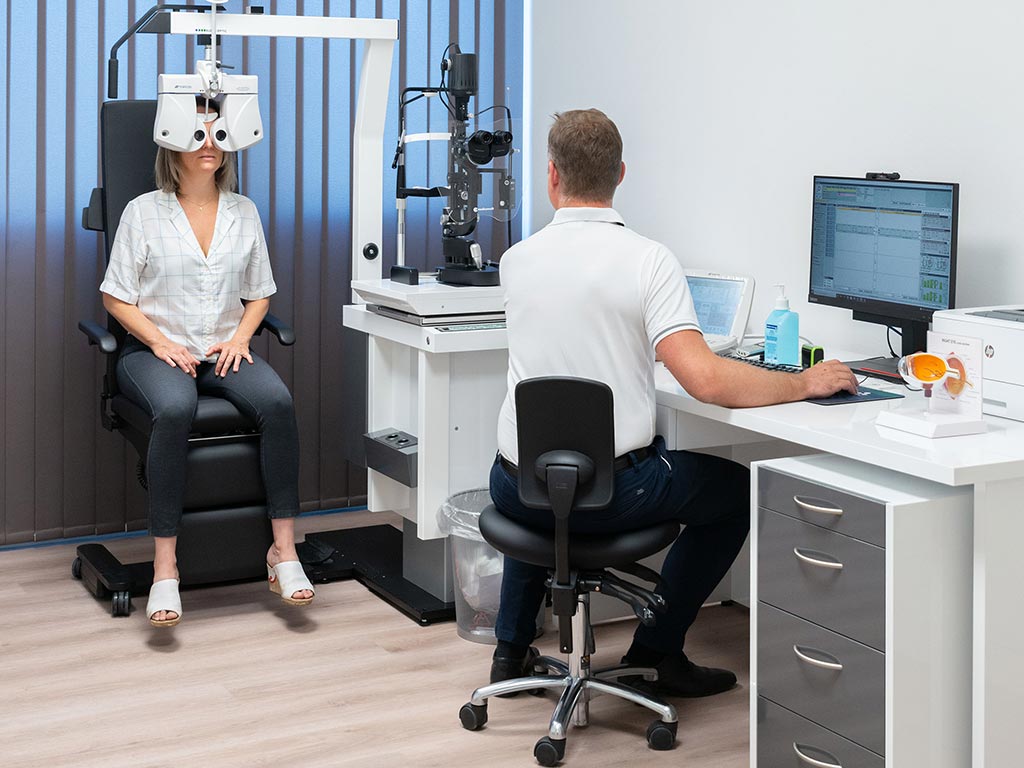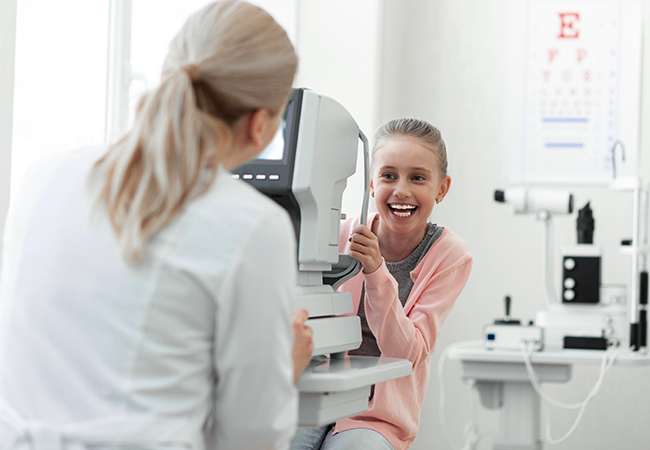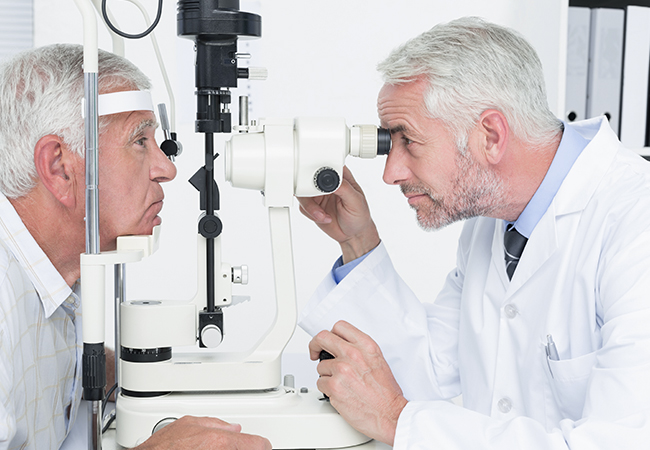Back of the eye
Prior to the fundus examination, drops will be placed on your eye, allowing your pupils to widen, allowing more light to pass through and allowing you to see the back of your eye better.
This examination allows your ophthalmologist to better see the blood vessels in the retina. As a result, it will help him/her to detect and monitor certain retinal pathologies and health problems such as vascular pathology, hypertension and diabetes.

Why does my child need this test?

A fundus may be recommended in a child to detect a vascular anomaly, an abnormal rotation of the eyeball or a tumour, which is fortunately rare.
In the case of premature birth, this examination is also necessary for the infant.
The detection of any changes in the retinal vessels due to prematurity allows for effective treatment to preserve vision.
Your specialist will decide whether this examination is necessary for your child.
The eye is the only transparent organ in the body. The ophthalmological examination provides information about the patient's vision and general health.
For example, certain brain tumours, high blood pressure, bacterial infections, multiple sclerosis and even drug intoxication can be detected during an eye examination.

When to see the ophthalmologist?
It is advisable to visit the ophthalmologist every two to three years. Those who may need to consult more often are :
People whose work is tiring for the eyes (computers, etc.)
People with diabetes or high blood pressure
People with a family history of glaucoma.
People with a family history of AMD

